Horse racing trainer rides off in a new direction
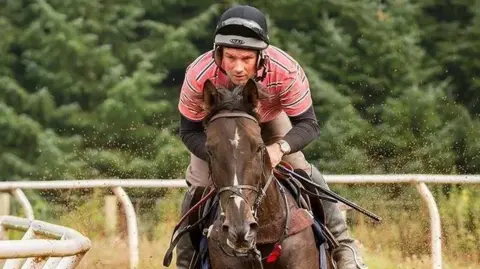 James Ewart Racing
James Ewart RacingAs career changes go, it is a pretty dramatic one.
After more than 20 years as a horse racing trainer, James Ewart has decided to give up the sport to focus on his renewable energy business.
He has sent out countless winners from his yard at Langholm in the south of Scotland.
However, with a young family he said now the time was right to steer his career in a new direction.
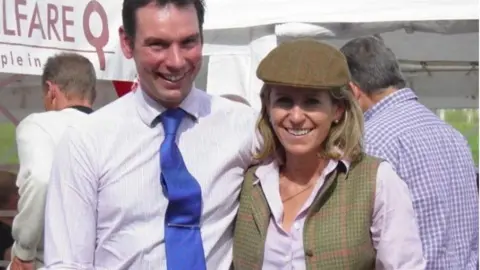 James Ewart Racing
James Ewart RacingIt has been a long journey in the sport for the 46-year-old and his wife Briony, who has worked alongside him at the yard.
"I rode in my first race when I was 16 and I rode my last race probably when I was about 24," said James.
"We've invested an awful lot of money in the yard, putting in really good facilities and we weren't really seeing the dividend.
"It's an existence living at best and the problem is that there is no certainty or security as a trainer."
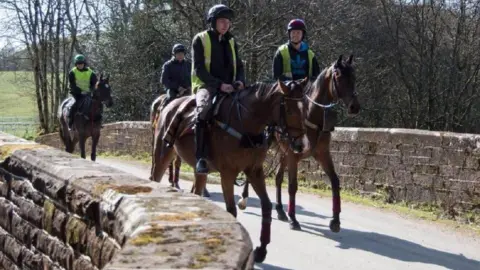 James Ewart Racing
James Ewart RacingHe said having a young family made him realise that it was time to change from a career which was "very selfish" with his hours and created a "lot of financial stress".
"I think now is the time to change direction where I'm still luckily young enough that I can," he said.
That direction is renewable energy - but with a nod to his love of horse racing.
"I set up a company about three years ago called ESB Scotland, bizarrely enough, named after the racehorse that beat Devon Loch in the Grand National," he explained.
"It's a renewable energy company and we've been developing sites."
They have been looking at battery storage projects and have got "quite a long way down the road" with two - one at Harker in Cumbria and another at Coalburn in South Lanarkshire.
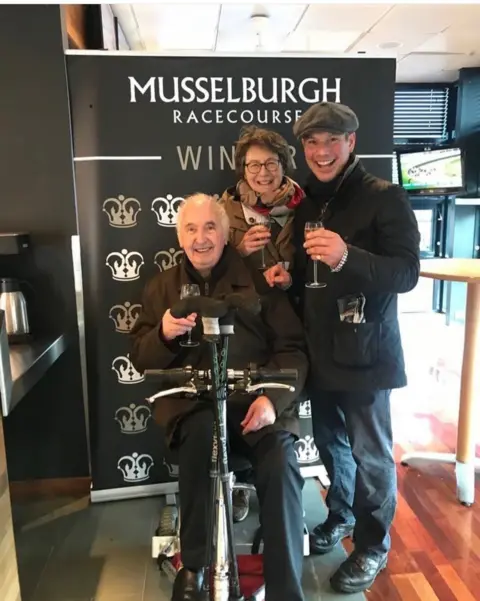 James Ewart Racing
James Ewart RacingDespite the differences in the field, he said, there were some things racing could help him with in his new life.
"We've been learning on the job and that's probably what racing teaches you because in life, I would say, almost everybody to a certain degree learns from their failures and mistakes," he said.
"In racing, if you're really successful over a season of 12 months, you have a strike rate of roughly 20% - which means you lose 80% of the time.
"But that time losing is the time where you create winners because you learn what you need to do."
He said it was "exactly the same" in many walks of life, including renewable energy with its planning and connection applications.
"It's peculiarly complicated and you keep bashing away and you learn from your failures," he said.
"If one option doesn't work, you look at another option, so I guess resilience is probably what racing has taught us."
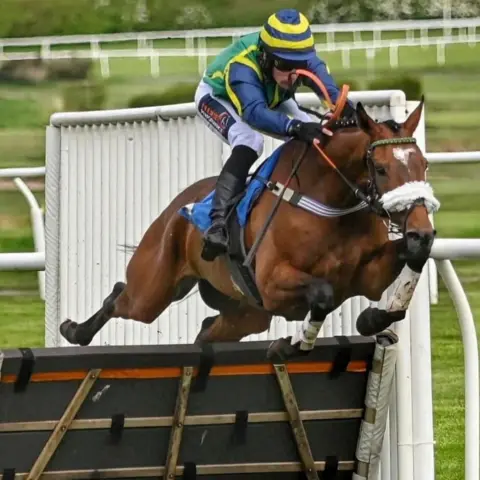 Offthebitphotography
OffthebitphotographyAmong the highlights of his career was getting four winners on one day at two different courses which he described as "quite good".
Nice horses like Sa Suffit, Quicuyo and Aristo du Plessis are another fond memory along with breaking the track record at Doncaster with Beneficial Reform.
He said: "We enjoyed every winner, you know, it's a way of life, isn't it?
"It's very pleasurable training in the morning, doing the work and seeing the horses, building relationships with staff and with the owners.
"Those are all the best parts of the game aren't they?
"And there's some wonderful, wonderful people in racing - wonderful characters, really talented individuals."
He said some of the staff at the yard would now go to work for other trainers and others were going abroad.
However, although he is turning his back on the sport, he said his experience had been a positive one.
"It's a fantastic sport, I love it to bits," he said.
"The truth was, if I didn't have to make a decision I would be staying where I am.
"Probably quite selfishly, if I hadn't got a little boy Jack, I would be still training because you could live that hand to mouth existence."
